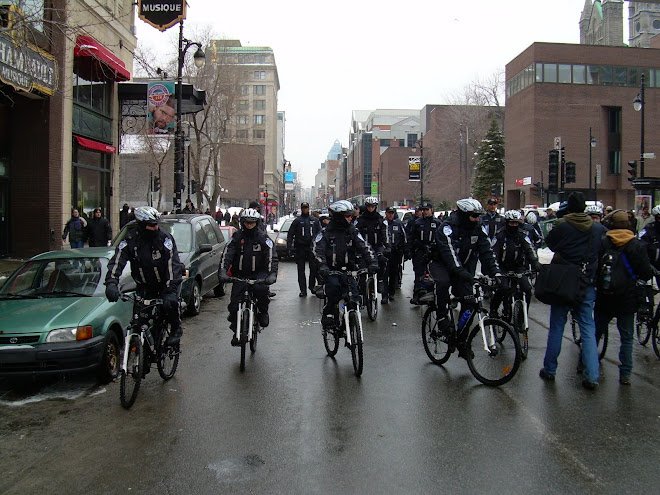Just-a-thought post...as has been pointed out, networked technologies probably played a significant role in the come-up of the Greek protests and rioting (though online/mobile technologies having the jump on 'traditional' media does not necessarily mean that that these technologies were primarily responsible for coordinating widespread actions - though this is certainly possible); as Howard Rheingold put it:
"It’s hardly news any more that demonstrations, riots, get out the vote campaigns are coordinated via social media. In other words…smart mobs."
http://www.smartmobs.com/2008/12/18/twitter-ahead-of-news-media-in-greek-riots/
...but it remains an open question what, exactly, 'smart mobs' (or any mobs) accomplish. It is certainly likely that the initial public response made it impossible for the Greek authorities to sweep the police shooting of Alexis Grigoropolous under the rug (think of the shooting of Mohammed Anas Bennis in Montreal three years ago, for example), and that weeks of actions have certainly made clear that a lot of people are not happy (with the Greek state, the Karamanlis government, police violence, capitalism, etc.). But specific demands, such as the disarming of police and Karamanlis' resignation...reamin outstanding. As one anarchist forum-poster put it recently, the main effect (as with most mass protest actions) could be seen as 'the propagation of dissent.' But what, then, are the resonances of this dissent when the initial wave of actions subsides into something less intense? And how do users of networked technologies deal with the seeming calm after the storm (even if the situation on the ground is not as calm as it might sem from afar)?
I think it's time for me to start proposing some relatively coherent answers to these central questions on the basis of what I'm seeing. In the next couple of weeks, that's what I'm going to try to do...in addition to my promised digression on 'violence'(both theoretical and actually described), my regular random updates and links, and a cursory treatment of the main questions outlined at the outset of this thing.
Subscribe to:
Post Comments (Atom)


No comments:
Post a Comment